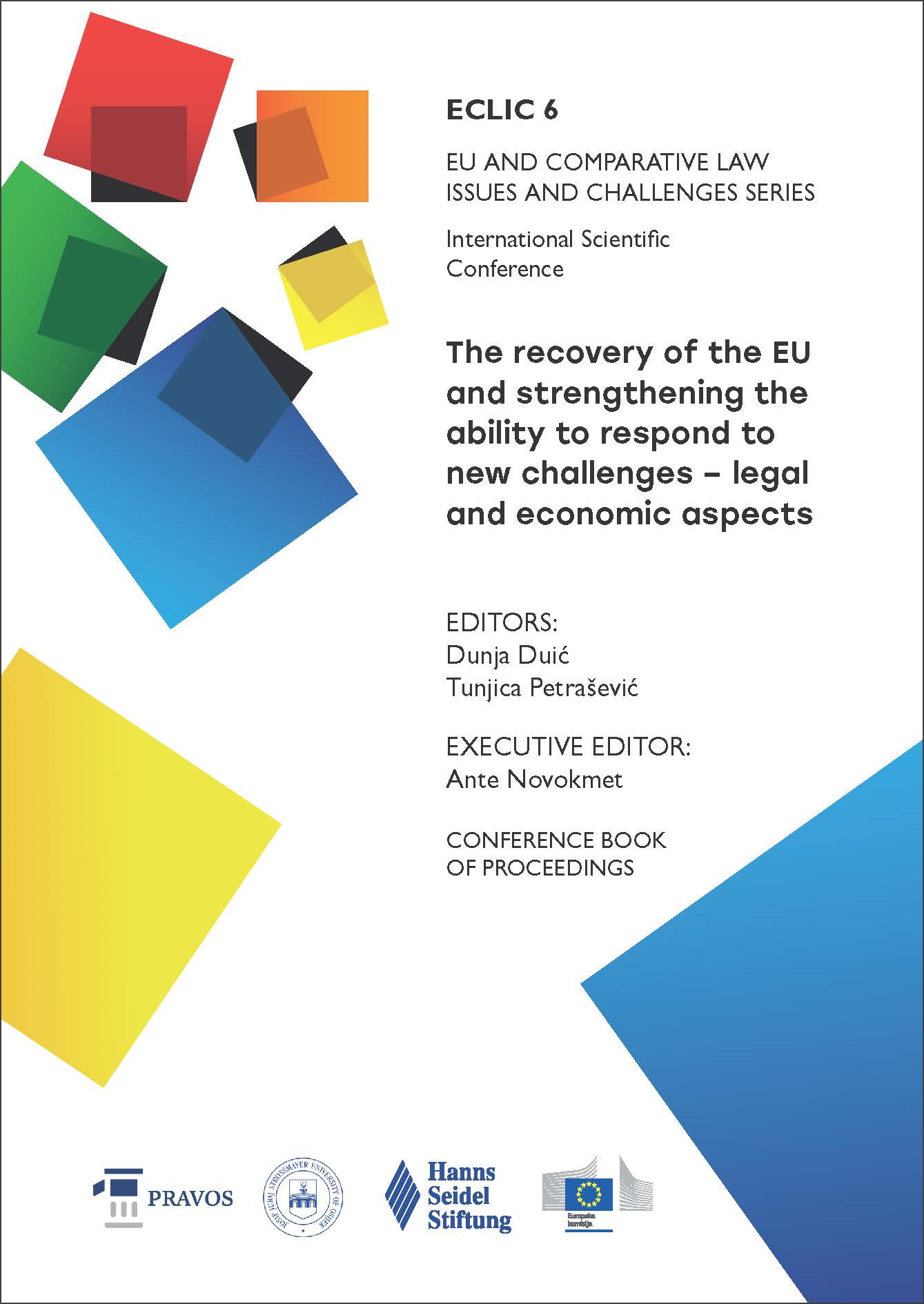THE RISE OF CLIMATE CHANGE LITIGATION
IS THERE A (REAL) LEGAL RISK FOR EU BANKING SECTOR?
DOI:
https://doi.org/10.25234/eclic/22417Abstract
Banks had a crucial role in both major crises that hit the globe in the last fifteen years. While they were held responsible for onset of the global financial crisis in 2007, banks, oppositely, greatly contributed in mitigating the negative effects of recent health crisis caused by COVID- 19. The latter calamity showed us that certain natural events can represent significant threat not only to human lives and health but also to financial markets. Apart from pandemic, there is another nature related threat on the financial market horizon – the climate change. Recent actions on EU and international level show that role of the banks in tackling climate change crisis would not be negligible. For decades there were multiple attempts to encourage governments to take bolder measures to combat climate change by signing various international agreements. Nonetheless, only the Paris Agreement, that aims to reduce greenhouse gas emission to achieve a climate neutral world by 2050, proved to be a real game changer. Ever since the Agreement entered into force in 2015, there is a continuous and significant rise in climate change litigations. Such litigations are initiated primarily against governments for not reaching the Paris Agreements goals, but also against private sector – notably the emitters of CO2. However, not only are CO2 emitters held personally responsible for environmental damage in legal proceedings conducted, but also other parties that could influence CO2 emissions. Banks can indirectly influence CO2 emission, for example by providing credit lines to carbonintensive sectors. However, this indirect influence of banks to climate change is still not specifically recognized and regulated. Analysis of the climate change litigation landmark cases shows that national jurisdictions do not contain the legal basis for climate change responsibility stricto sensu. This legislative shortcoming is, however, overcome by interpreting legal principles and human rights obligations that arise from various international documents. Against this backdrop, it is necessary to ascertain is there a real climate change litigation risk for EU banks? Could banks, as private entities, be held responsible for contribution to climate change by invoking human rights? If the answer is affirmative, what can banks do in order to mitigate this risk? And finally, according to existing legal framework, are Croatian banks exposed to climate change litigation risk?
Downloads
Published
How to Cite
Issue
Section
License
Copyright (c) 2022 Ana Vargek Stilinović

This work is licensed under a Creative Commons Attribution-NonCommercial 4.0 International License.
Authors retain the copyright on the papers published in the Journal, but grant the right of first publication to the Journal. Papers accepted for publication or already published in ECLIC of the Faculty of Law in Osijek may be published by the author(s) in other publications only with proper notice of its previous publication in ECLIC.


